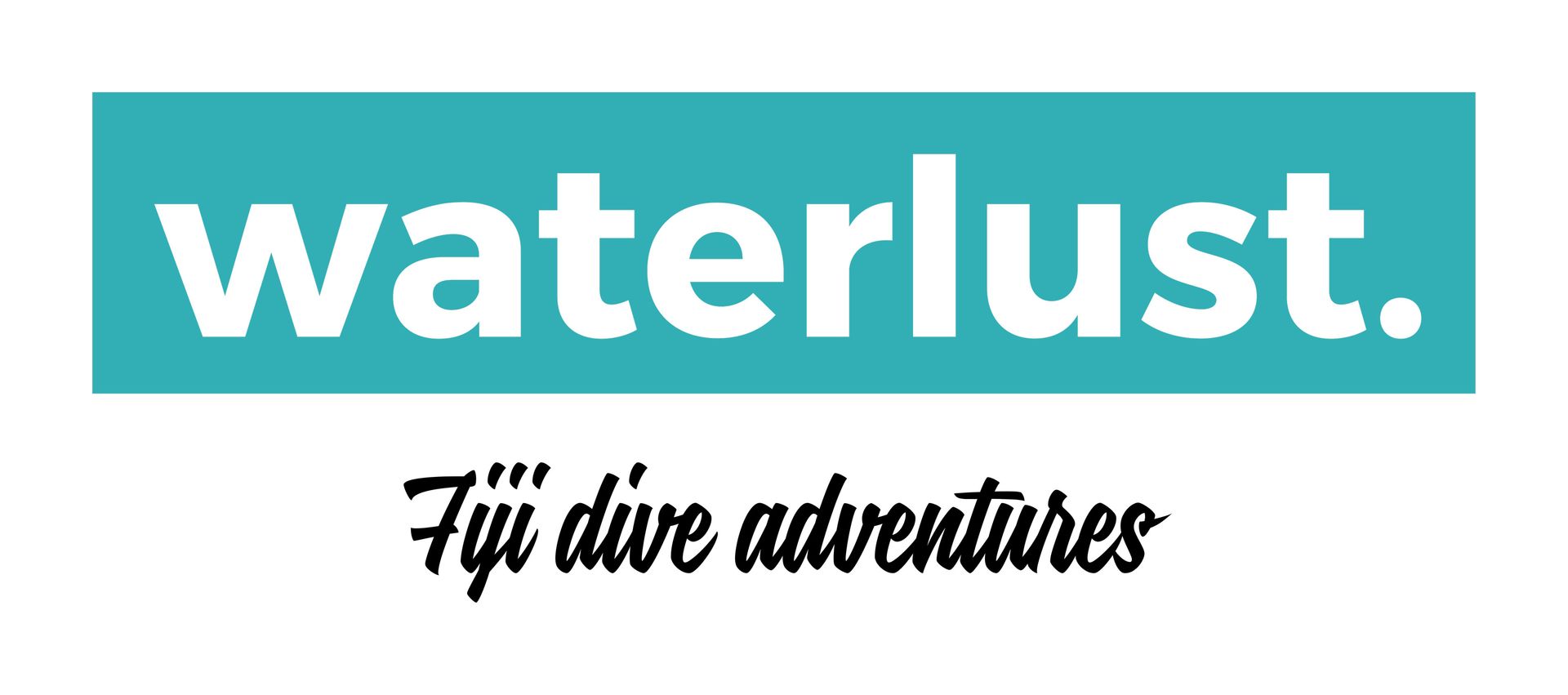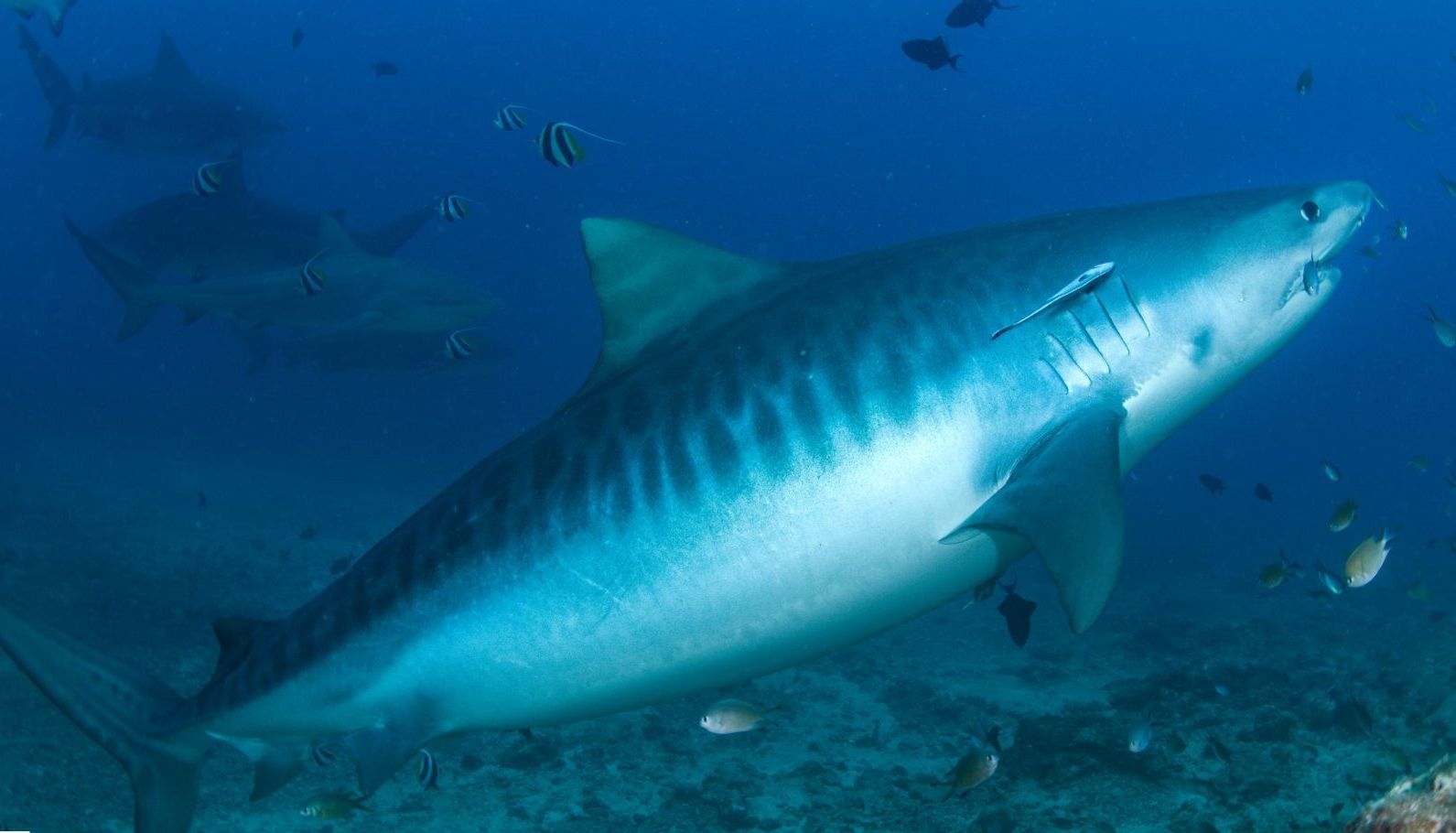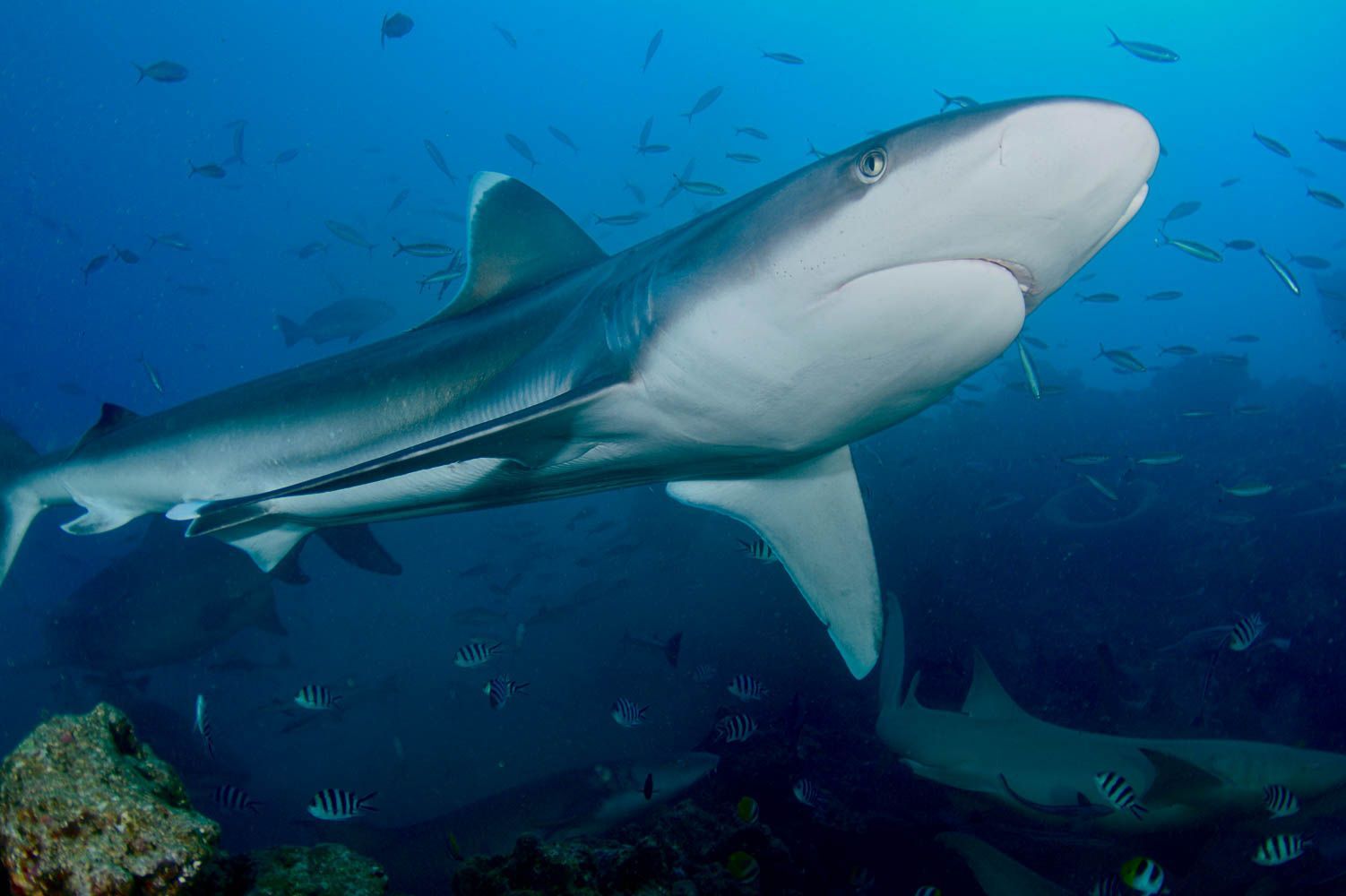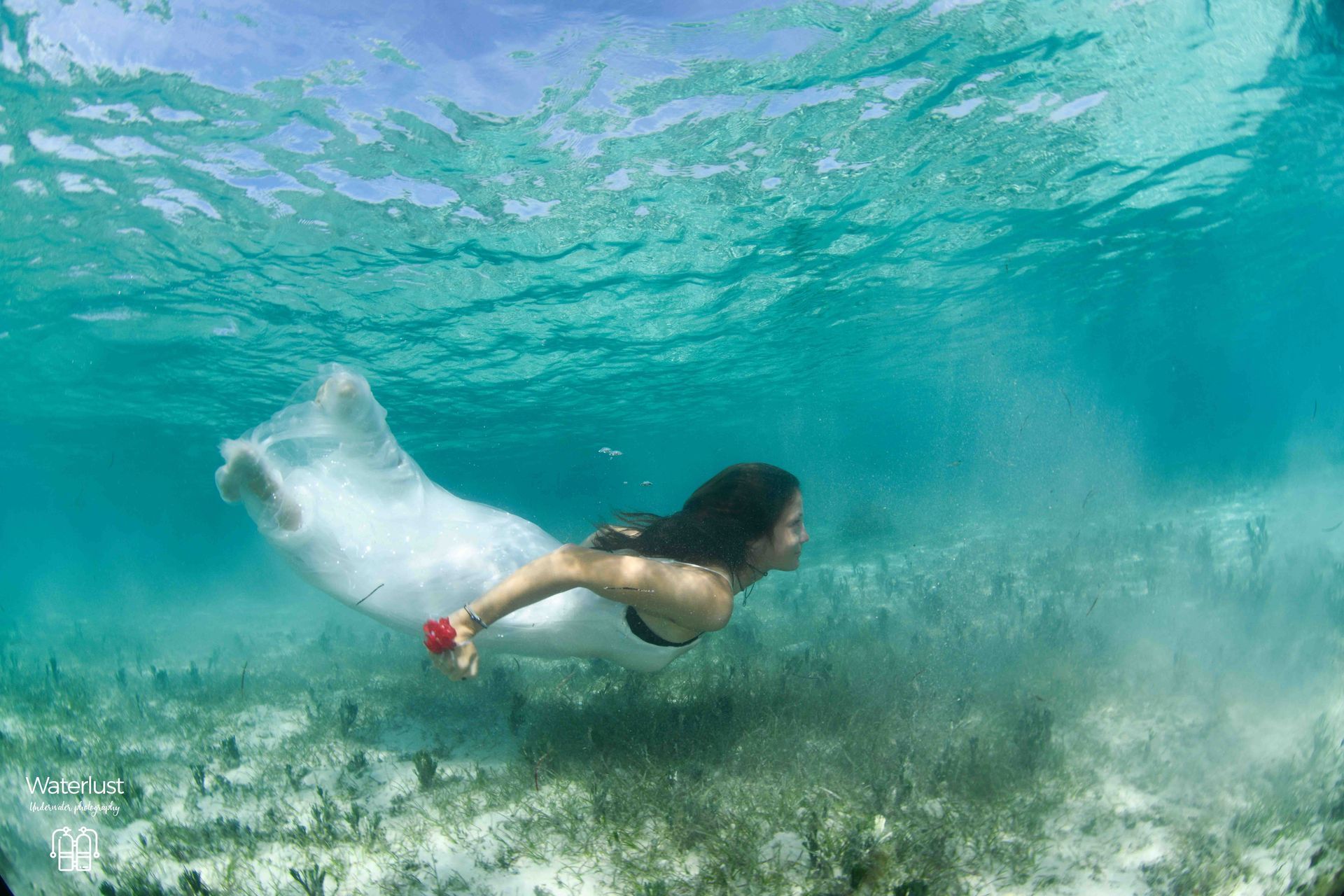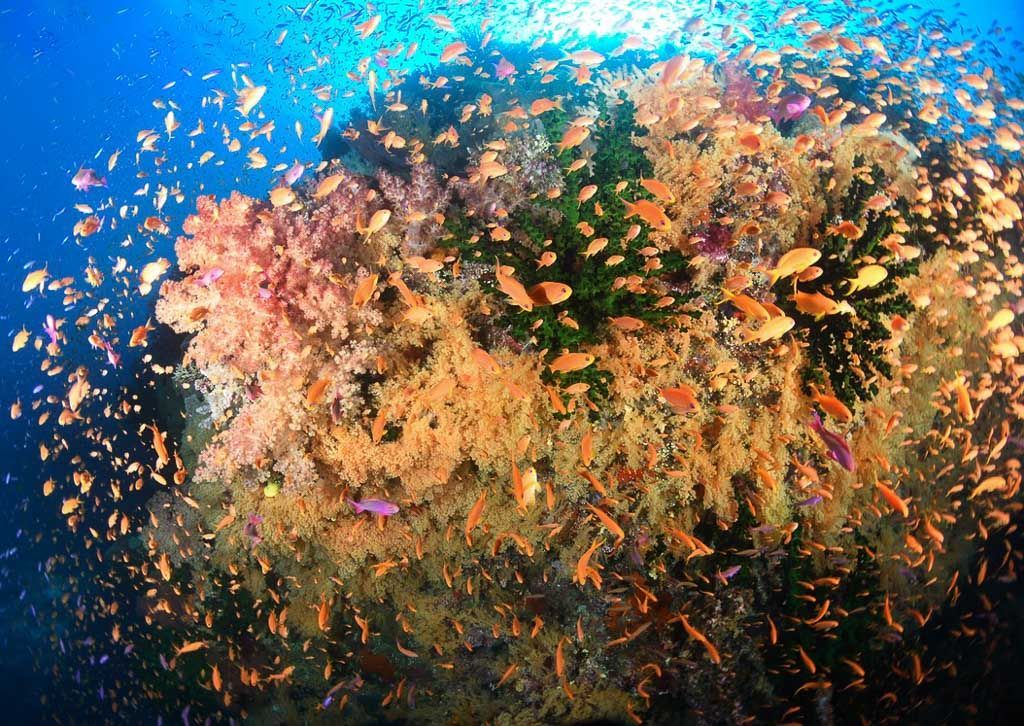Where can I dive with sharks in Fiji?
'You should be afraid when you are in an ocean and you don't see sharks' (Sylvia Earle)
What species of shark can I see in Fiji?
Shark populations in many places in the world are in sharp decline. Fiji boasts a healthy shark population and on most reef dives in our country scuba divers can expect to see grey and white tip reef sharks and often silver tips and hammerheads in the blue water. However, in Fiji we don't leave the shark spotting to chance - there are several shark feeds around the country - all of which are based around the main island, Viti Levu - and concentrated in Pacific Harbour on the South coast. It is possible to regularly see up to 8 species of sharks in Fiji's blue waters.
Our shark feeds are incredible experiences. Concentrated in Beqa Lagoon due to the presence of river mouths favoured by breeding bull sharks, they provide a way for the local villagers to avoid granting fishing licences for these reefs and to protect the sharks. In turn the tuna heads which are fed to the sharks are recycled from the factories in the capital city Suva, and have restored fish stocks in these marine parks. When the shark feeding began, in 1999, the small reefs were empty of fish and in sharp decline. By encouraging scuba divers to see the sharks a conservation fee is given to the villagers who in turn protect the reefs from fishing.
Bull sharks (Carcharinus leucas) get their name from their stocky, muscular species of shark. They can grow up to a mighty 4 metres and weigh over 225 kg. They are aggressive by nature and territorial. Bull sharks have a critical role in the ecosystem as they regulate populations of other marine animals, and their presence in the rivers and estuaries helps to maintain the health of these ecosystems.
They have been abundant around Beqa Lagoon for a long time due to the number of river mouths in the area. The bulls inhabit an interesting biological niche as they flourish in salt and fresh water. They are the only shark about to modify their kidneys to retain salt and regulate their osmotic pressure. Female bull sharks, significantly larger than the males, travel up murky rivers each year to have their litter of pups. This reduces the food competition for the young. They are also able to dine on the carcasses of animals washing into the rivers during Fiji's wet season.
The volcanic topography of Beqa Lagoon has also provided a deep channel of running parallel to the shore. The bull shark use the 200m deep 'freeway' to move between river mouths along with the other pelagic species present in the depths.
-
Silvertip shark
Stark beauty of desolate dunesButton -
Lemon shark
Button -
Bull shark
Portraits of people from around the globeButton -
Nurse Shark
Visual odyssey across continentsButton
Tiger shark
ButtonIs the Fiji shark dive safe?
Like all predators sharks are biologically honed to look for an animal separated from its herd. The idea that a creature is attacked as it is weak or sick is a myth. It is because it can easily be caught. Hence, after descending down the line to the man made wall we have to kneel together in a tight group at the shark feeds with a safety diver carrying a pole at each end. Our Fijian shark guardian divers are present with sticks to push away sharks that come too close by accident.
Being weighted correctly is important and divers should veer towards being overweighted as floating up into a shark feed is to be avoided at all costs. Keeping your arms closely in, not touching the sharks however close they are, and obeying any instructions from the safety divers is critical.
Any accident might result in these apex predators losing their protection and that would be catastrophic for our shark population.
All dives involve a mini amphitheatre with a manmade wall and feeding bins, the most impressive shark dives involve expert divers hand feeding more predictable sharks , such as the tiger sharks and the pregnant slow moving bull sharks. It's a huge rush to witness as 20 or 30 bull sharks circle waiting for their brunch. Up to 8 species of shark are regularly seen on the feeds. Divers should have their Advanced Open Water qualification as the shark feeds are below 18 metres and the current can be strong as is usual on healthy reef systems - the two feeds we like the best, are both around 22 - 23 metres and on the reefs in the area with the best viz. Both offer the chance of seeing hand feeding so you can stare into the jaws of these apex predators up close. For photographers strobe lights are allowed but the continuous video lights can blind feeders and stimulate the electro magnetic field sensory perception of the sharks resulting in erratic behaviour.
How much does the Fiji shark dive cost?
The bull shark experience in Pacific Harbour, on the south side of the main island, Viti Levu, just a 3 hours drive from Nadi, is an absolute bucket list dive. The shark dives run on mondays, tuesdays, thursdays and saturdays.
See an average of 30 bull sharks (many of which are enormous resident pregnant females), an occasional tiger shark, tawny nurse sharks, lemon sharks, silvertips and all the usual reefies.
Coral Coast divers operate 4 shark feeds per week and their friendly dive shop is a PADI eco centre on the main island. The owner, Axcel and his team, including hand feeder supremo, Wati, get you up close and personal for an exhilarating experience with these lords of the deep.
The Colosseum Shark Dive
After a detailed safety briefing, head off to the clear waters of the outer reef. At the start of the dive you descend down a line from the dive boat to a manmade wall at 20 metres to watch the spectacle.
The shark safety divers will be at your shoulders as you kneel at the wall, with long poles to divert any sharks that come too close and will be there to guide your descent and ascent back to the boat.
The shark dives last around 30 minutes.
Shark Dive Costs - 2 Tanks
- 2 tank shark dive FJD$415 (US$187)**
- Dive equipment FJD$50 (US$22.50)
- Marine park fee FJD$25 (cash only)*
* The marine park fee is paid to the local Fiijian village who owns the reef environment for the Colosseum shark dive. In exchang for the fees from the divers the village chief prohibits any fishing on the reef and protects the sharks and the wider environment.
** The shark dive currently includes a $10 fuel surcharge per diver.
Bookings for Coral Coast Divers 2 or 4 tank shark dives https://www.waterlustfiji.com/coral-coast-divers-and-club-oceanus
For shark fans looking for a longer vacation Beqa Lagoon Resort is the home of Fiji's tiger sharks
https://www.waterlustfiji.com/beqa-lagoon-resort
By Alison Smith, Fiji underwater photographer and writer of Blue Bubbles - Underwater Fiji
CONTACT WATERLUST
We will get back to you as soon as possible.
Please try again later.
Powered by www.designhive.online/
